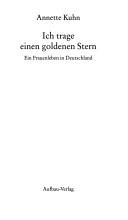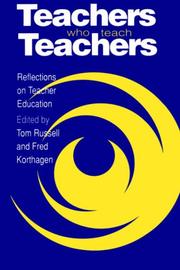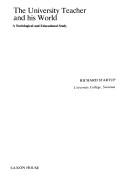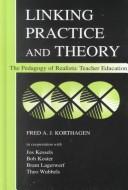| Listing 1 - 10 of 51 | << page >> |
Sort by
|
Book
ISBN: 3214065130 Year: 1989 Publisher: Wien Manzsche Verlags- und Universitätsbuchhandlung
Abstract | Keywords | Export | Availability | Bookmark
 Loading...
Loading...Choose an application
- Reference Manager
- EndNote
- RefWorks (Direct export to RefWorks)
Law teachers --- Law professors --- Professors of law --- Biography --- Merkl, Adolf, --- Merkl, Adolf Julius, --- Legal theory and methods. Philosophy of law --- Merkl, A. --- Teachers
Book
ISBN: 9021465671 Year: 1992 Publisher: Amsterdam Querido
Abstract | Keywords | Export | Availability | Bookmark
 Loading...
Loading...Choose an application
- Reference Manager
- EndNote
- RefWorks (Direct export to RefWorks)
Dutch literature --- Nes, van, J. --- Pareau, N.E.M. --- Scheltema, Herman Jan --- Authors, Dutch --- Law teachers --- Law professors --- Professors of law --- Teachers --- Biography --- Scheltema, H. J.

ISBN: 3351025564 Year: 2003 Publisher: Berlin Aufbau-Verlag
Abstract | Keywords | Export | Availability | Bookmark
 Loading...
Loading...Choose an application
- Reference Manager
- EndNote
- RefWorks (Direct export to RefWorks)
History --- Professors --- Autobiography --- Book --- Kuhn, Annette --- anno 1900-1999 --- anno 2000-2099 --- Germany
Book
ISBN: 9789087040901 Year: 2009 Publisher: Hilversum Verloren
Abstract | Keywords | Export | Availability | Bookmark
 Loading...
Loading...Choose an application
- Reference Manager
- EndNote
- RefWorks (Direct export to RefWorks)
Law teachers --- Lawyers --- Practice of law --- Law --- Law practice --- Advocates --- Attorneys --- Bar --- Barristers --- Jurists --- Legal profession --- Solicitors --- Law professors --- Professors of law --- Biography --- History --- Practice --- Legal status, laws, etc. --- History of the law --- Rotterdam --- Teachers --- Representation in administrative proceedings --- Persons

ISBN: 0750704667 0750704659 9780750704656 1315043157 1135399980 9781315043159 9781135399986 9781135400057 9781135400125 9780750704663 Year: 1995 Publisher: London Falmer
Abstract | Keywords | Export | Availability | Bookmark
 Loading...
Loading...Choose an application
- Reference Manager
- EndNote
- RefWorks (Direct export to RefWorks)
This is a reflection on the education of teachers, written by teacher educators who discuss features of their work and the challenges facing teacher education in the 1990s. The book invites the reader to attempt similar analyses of personal practice and development in their own teaching.; The book deals with the personal development of both new and experienced teacher educators, illustrating how strongly teacher educators are influenced by their visions and by the challenge to prove themselves in the university setting. In addition, the book examines the ways in which teacher educators have acted to promote their own professional development and study their own practices, including writing as a tool for reflection, a life-history approach to self-study, as well as a study of educative relationships with others, and the analysis of a personal return to the classroom. Finally, it takes a broader look at the professional development of teacher educators and offers a challenge to all teacher educators to consider the tension between rigour and relevance.
Teacher education. Teacher's profession --- Teachers --- Teacher educators --- Training of --- Teacher education --- Teacher training --- Teachers, Training of --- Education professors --- Education teachers --- Professors of education --- Professors of teaching --- Teachers of education --- College teachers --- Teacher educators. --- Training of. --- Teachers - Training of --- Teacher educators - Training of
Book
ISBN: 0436256630 9780436256639 Year: 1984 Publisher: London Secker & Warburg
Abstract | Keywords | Export | Availability | Bookmark
 Loading...
Loading...Choose an application
- Reference Manager
- EndNote
- RefWorks (Direct export to RefWorks)
English literature --- College teachers --- Critics --- College teachers. --- Literary critics --- Criticism --- Litterateurs --- Academicians --- Academics (Persons) --- College instructors --- College lecturers --- College professors --- College science teachers --- Lectors (Higher education) --- Lecturers, College --- Lecturers, University --- Professors --- Universities and colleges --- University academics --- University instructors --- University lecturers --- University professors --- University teachers --- Teachers --- Faculty --- College teachers - Fiction --- Critics - Fiction

ISBN: 0566002957 Year: 1979 Publisher: Farnborough Saxon House
Abstract | Keywords | Export | Availability | Bookmark
 Loading...
Loading...Choose an application
- Reference Manager
- EndNote
- RefWorks (Direct export to RefWorks)
Sociology of education --- Higher education --- Great Britain --- College teachers --- Academicians --- Academics (Persons) --- College instructors --- College lecturers --- College professors --- College science teachers --- Lectors (Higher education) --- Lecturers, College --- Lecturers, University --- Professors --- Universities and colleges --- University academics --- University instructors --- University lecturers --- University professors --- University teachers --- Teachers --- Faculty

ISBN: 080583981X 9780805839814 Year: 2001 Publisher: Mahwah, N.J. Erlbaum
Abstract | Keywords | Export | Availability | Bookmark
 Loading...
Loading...Choose an application
- Reference Manager
- EndNote
- RefWorks (Direct export to RefWorks)
Teacher education. Teacher's profession --- lerarenopleiding --- Teachers --- Teacher educators --- Training of. --- #PBIB:2002.3 --- Teacher education --- Teacher training --- Teachers, Training of --- Education professors --- Education teachers --- Professors of education --- Professors of teaching --- Teachers of education --- College teachers --- Training of --- Teachers - Training of. --- Teacher educators - Training of.
Book
ISBN: 9051890540 Year: 1990 Publisher: Utrecht Lemma
Abstract | Keywords | Export | Availability | Bookmark
 Loading...
Loading...Choose an application
- Reference Manager
- EndNote
- RefWorks (Direct export to RefWorks)
College teachers --- Peer review --- Academicians --- Academics (Persons) --- College instructors --- College lecturers --- College professors --- College science teachers --- Lectors (Higher education) --- Lecturers, College --- Lecturers, University --- Professors --- Universities and colleges --- University academics --- University instructors --- University lecturers --- University professors --- University teachers --- Peer evaluation --- Peer rating --- Review, Peer --- Rating of&delete& --- Congresses --- Teachers --- Higher education --- Great Britain --- Netherlands --- Professional employees --- 360-degree feedback (Rating of employees) --- Rating of --- Faculty
Book
ISBN: 0674074513 0674074483 9780674074484 9780674059092 0674059093 Year: 2013 Publisher: Cambridge, Mass. Harvard University Press
Abstract | Keywords | Export | Availability | Bookmark
 Loading...
Loading...Choose an application
- Reference Manager
- EndNote
- RefWorks (Direct export to RefWorks)
Some observers see American academia as a bastion of leftist groupthink that indoctrinates students and silences conservative voices. Others see a protected enclave that naturally produces free-thinking, progressive intellectuals. Both views are self-serving, says Neil Gross, but neither is correct. Why Are Professors Liberal and Why Do Conservatives Care? explains how academic liberalism became a self-reproducing phenomenon, and why Americans on both the left and right should take notice. Academia employs a higher percentage of liberals than nearly any other profession. But the usual explanations-hiring bias against conservatives, correlations of liberal ideology with high intelligence-do not hold up to scrutiny. Drawing on a range of original research, statistics, and interviews, Gross argues that "political typing" plays an overlooked role in shaping academic liberalism. For historical reasons, the professoriate developed a reputation for liberal politics early in the twentieth century. As this perception spread, it exerted a self-selecting influence on bright young liberals, while deterring equally promising conservatives. Most professors' political views formed well before they stepped behind the lectern for the first time. Why Are Professors Liberal and Why Do Conservatives Care? shows how studying the political sympathies of professors and their critics can shed light not only on academic life but on American politics, where the modern conservative movement was built in no small part around opposition to the "liberal elite" in higher education. This divide between academic liberals and nonacademic conservatives makes accord on issues as diverse as climate change, immigration, and foreign policy more difficult.
College teachers --- Liberalism --- Liberal egalitarianism --- Liberty --- Political science --- Social sciences --- Academicians --- Academics (Persons) --- College instructors --- College lecturers --- College professors --- College science teachers --- Lectors (Higher education) --- Lecturers, College --- Lecturers, University --- Professors --- Universities and colleges --- University academics --- University instructors --- University lecturers --- University professors --- University teachers --- Teachers --- Political activity --- Faculty --- Political sociology --- Higher education --- United States --- United States of America
| Listing 1 - 10 of 51 | << page >> |
Sort by
|

 Search
Search Feedback
Feedback About UniCat
About UniCat  Help
Help News
News